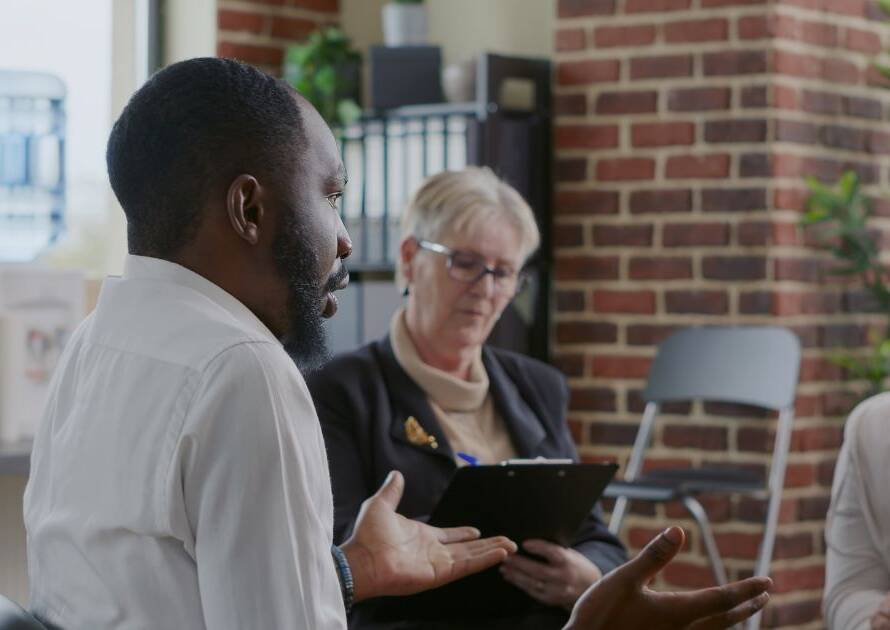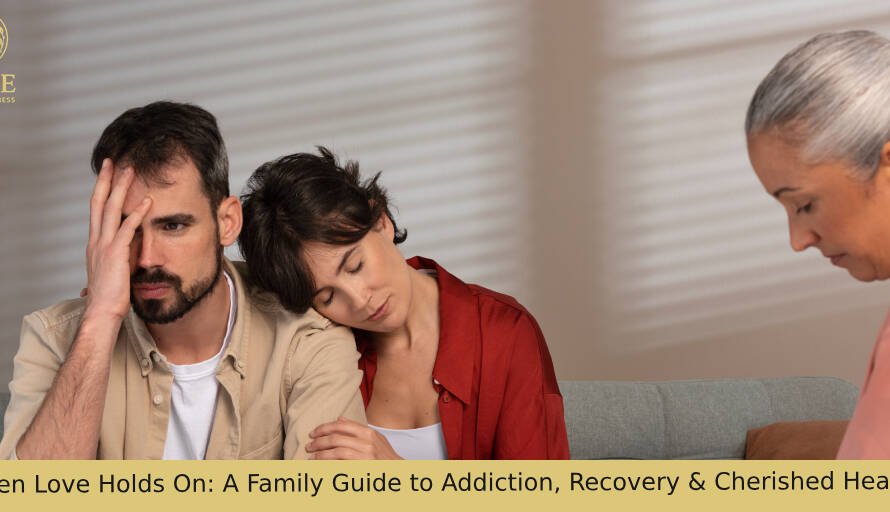Living with addiction is tough enough, but when it’s tangled with mental health challenges like depression or anxiety, it can feel like an impossible battle. This is called dual diagnosis, and it’s more common than you might think. For those seeking a way out, integrated care can be a lifeline. In this blog, we’re going to define dual diagnosis, explore its prevalence, and detail how Hope Rehabs offers comprehensive dual diagnosis rehab to heal both mind and body. If you or a loved one are facing addiction and depression, anxiety and substance abuse, or other co-occurring disorders, Hope Rehabs is here to help.
What Is Dual Diagnosis?
Dual diagnosis, also known as co-occurring disorders, refers to the presence of both a substance use disorder and a mental health condition, such as depression, anxiety, or Post Traumatic Stress Disease. These conditions often feed into each other, making recovery more complex. For example, someone struggling with anxiety and substance abuse might use alcohol to calm nerves, only to find their anxiety worsens over time. Similarly, addiction and depression can create a cycle where substance use deepens feelings of hopelessness. The National Alliance on Mental Illness (NAMI) estimates that about 7.9 million adults in the U.S. live with co-occurring disorders, with similar patterns in the UK and globally. Nearly 50% of people with a substance use disorder also have a mental health condition, underscoring the need for integrated mental health rehab. Recognizing and treating both issues together is key to breaking the cycle and achieving lasting recovery.
Why Dual Diagnosis Matters
When mental health and addiction go untreated, they amplify each other. For instance:
- Addiction and Depression: Substance use might temporarily mask depressive symptoms, but withdrawal often deepens despair.
- Anxiety and Substance Abuse: Drugs or alcohol may seem to ease anxiety, but dependence increases panic and stress over time.
- Trauma and Addiction: Unresolved trauma can drive substance use as a coping mechanism, complicating recovery.
Integrated care, like that offered at Hope Rehabs, addresses both conditions simultaneously, offering a path to true healing.
Hope Rehabs’ Integrated Approach to Dual Diagnosis
Hope Rehabs, a leading UK provider of dual diagnosis rehab, understands that treating addiction without addressing mental health or vice versa is like treating half the problem. Their holistic, evidence-based approach aligns addiction treatment services with mental health care, ensuring comprehensive recovery.
Comprehensive Assessment: Understanding Your Needs
Your journey at Hope Rehabs begins with a confidential assessment to evaluate both your substance use and mental health conditions. Clinicians identify specific challenges, such as addiction and depression or anxiety and substance abuse, to create a personalized treatment plan. This step ensures that both disorders are addressed from the start, setting a strong foundation for recovery.
Medically Supervised Detox: A Safe First Step
For those with substance dependence, detox is often necessary. Hope Rehabs provides medically supervised detox to manage withdrawal symptoms safely, using medications like antidepressants or anti-anxiety drugs when needed to stabilize mental health during this phase. This integrated approach ensures that co-occurring disorders are considered from day one, reducing risks like severe anxiety or depressive episodes during detox.
Inpatient Dual Diagnosis Rehab: Holistic Healing
Hope Rehabs’ mental health rehab through inpatient programs offers a supportive, trigger-free environment. Patients stay in comfortable, private accommodations, receiving 24/7 care tailored to both addiction and mental health needs. Programs, typically lasting 30–90 days, integrate:
- Cognitive Behavioral Therapy (CBT): Helps reframe negative thought patterns, addressing triggers for both addiction and mental health issues.
- Dialectical Behavior Therapy (DBT): Builds emotional regulation skills, especially effective for anxiety and substance abuse or trauma-related disorders.
- Trauma-Informed Care: Recognizes the role of past trauma in addiction, using gentle, empathetic approaches to foster healing.
- Medication Management: Psychiatrists may prescribe medications to stabilize mood disorders or anxiety, ensuring they complement addiction treatment.
This integrated approach ensures that dual diagnosis rehab tackles both conditions in harmony, reducing the risk of relapse.
Family Therapy: Rebuilding Support Systems
Co-occurring disorders often strain family relationships. Hope Rehabs includes family therapy in addiction to mend bonds, educate loved ones about dual diagnosis, and address dynamics like co-dependency. These sessions create a supportive network, crucial for long-term recovery
Aftercare: Sustaining Recovery
Recovery doesn’t end after inpatient care. Hope Rehabs’ aftercare includes outpatient therapy, support groups, and ongoing mental health counseling to reinforce relapse prevention. Regular check-ins with therapists ensure that both addiction and mental health needs are managed, helping you stay on track.
Trauma-Informed Care: A Cornerstone of Healing
Hope Rehabs emphasizes trauma-informed care, recognizing that many with co-occurring disorders have experienced trauma. Their clinicians use compassionate, evidence-based methods to address trauma’s role in addiction, creating a safe space for processing and healing.
Practical Support: Comfort and Accessibility
Hope Rehabs makes recovery welcoming and inclusive:
- Residential Comfort: Their UK facility offers private rooms, serene surroundings, and healthy dining options, creating a nurturing environment.
- Personalized Treatment: Plans are tailored to address both addiction and mental health, whether through inpatient addiction treatment or outpatient care.
- International Accessibility: They support global clients with visa assistance and cultural dietary options, welcoming those from the US, India, and beyond.
Their approach aligns with National Alliance on Mental Illness’s call for integrated, person-centered care, making Hope Rehabs a trusted choice among private rehab clinics.
Common Myths About Dual Diagnosis Rehab
Misconceptions can delay seeking mental health rehab. Let’s debunk a few:
- You must treat addiction before mental health. Integrated care addresses both simultaneously for better outcomes.
- Dual diagnosis treatment is less effective. Combined approaches, like those at Hope Rehabs, have higher success rates.
- Rehab isn’t private. Hope Rehabs ensures strict confidentiality.
- I can manage on my own. Professional care for co–occurring disorders significantly improves recovery chances.
Why Choose Hope Rehabs Now?
Hope Rehabs stands out for its expertise in dual diagnosis rehab, offering a seamless blend of addiction and mental health care delivered by a compassionate team. Their focus on trauma-informed care and holistic therapies ensures that you’re treated as a whole person, not just a diagnosis. The National Alliance on Mental Illness underscores that integrated treatment improves quality of life, reduces relapse, and restores hope, making now the time to act.
Global Impact by the Numbers
- Globally, 296 million people used illegal drugs in 2021, with 39.5 million having a drug use disorder (Statista, 2024).
- In 2019, drug use disorders caused 85,984 deaths worldwide, a 296% increase since 2000 (PAHO/WHO, 2025).
- In Australia, about 650,000 adults (3% of the population) faced substance use disorders in 2020–2022 (AIHW, 2025).
With addiction and depression or anxiety and substance abuse affecting millions, Hope Rehabs offers a path to healing.
Frequently Asked Questions (FAQs)
- Can I seek dual diagnosis rehab if I’m not sure about my mental health condition?
Yes. Hope Rehabs’ assessments identify both substance use and mental health issues, ensuring tailored dual diagnosis rehab even if you’re unsure.
- How do I support a loved one with co-occurring disorders?
Approach with empathy, focusing on how their struggles affect their life. Hope Rehabs’ family therapy in addiction can guide families through the process.
- Is outpatient dual diagnosis treatment as effective as inpatient?
It depends. Outpatient suits milder cases with strong support, while inpatient addiction treatment offers structure for complex co-occurring disorders.
What’s the first day at Hope Rehabs like?
You’ll be welcomed with a thorough assessment, possible detox, and a personalized plan. The first 24–48 hours can be intense, but Hope Rehabs’ staff provide round-the-clock support to ease you in.For compassionate, complete support, Contact Us to book a confidential consultation with Hope Rehabs today. Your journey to recovery starts here.




